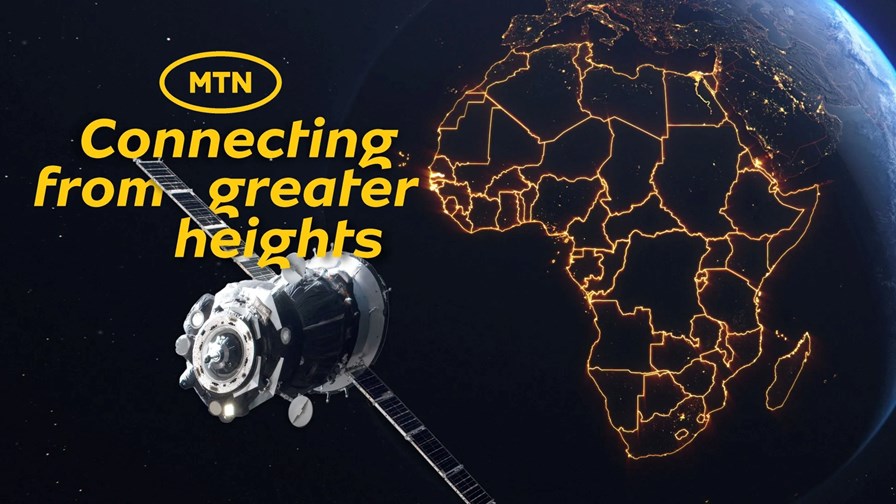
Source: MTN
- MTN is aiming to boost digital inclusion boost across its markets in Africa
- The giant telco is exploring multiple low-earth orbit (LEO) satellite partnerships
- It has completed multiple trials and is working with potential partners, such as OneWeb, Starlink, Lynk Global and AST SpaceMobile
Pan-African telco group MTN is seeking to improve digital inclusion across Africa by exploring multiple partnerships with low-earth orbit (LEO) satellite companies, such as OneWeb and Elon Musk’s Starlink.
The operator announced it is “exploring the skies” in its bid to provide broadband coverage to 95% of the population across its multimarket footprint by 2025 (from 88% in 2022). In the longer term, it hopes to achieve “universal access” across its operations on the continent.
MTN sees LEO satellite constellations as a perfect fit for its ambitions, as their orbit trajectory at altitudes of between 160km and 2,000km makes for shorter orbital periods, which results in lower signal travel times and reduced latency.
However, the technical capabilities are not the only attractive feature of LEO satellites – the “sharp fall in the cost of launching 1kg of payload into space (from US$85,000 in the 1980s to around US$1,000 now)” has also added to their allure.
Mazen Mroué, MTN Group chief technology and information officer, explained that MTN has focused on two “distinct yet complementary” LEO-based solutions for connectivity enhancement.
The first uses direct-to-cellular technology to augment network access in traditionally underserved regions. “Importantly, this technology is device-agnostic, ensuring compatibility with existing mobile units and requiring no special modifications,” Mroué said.
The second solution uses LEO satellites to deliver “critical” fixed connectivity to enterprise customers and backhaul connectivity for MTN cellular sites. “This is particularly relevant in remote and rural locations, where it offers a more affordable and efficient alternative,” he added.
To advance its work, the company has been relying on a number of partnerships with satellite players to test the capabilities of such technologies. One of the initiatives will see it trial direct-to-cell technology with Lynk Global in South Africa and Ghana. MTN is also in discussions with providers, such as AST SpaceMobile for direct-to-cell trials in Nigeria and South Sudan, and has committed to enterprise-grade satellite broadband trials in Rwanda and Nigeria with SpaceX’s Starlink. Finally, it is also in discussions with Eutelsat OneWeb for a planned satellite broadband pilot in its home market of South Africa.
“While the typical financing model would be a revenue-sharing one (where the customer is MTN’s and the satellite infrastructure belongs to the LEO satellite vendor), our agreements with various vendors are negotiated on a case-by-case basis,” Mroué noted.
In addition to these upcoming plans, the telco group highlighted that it has already conducted several tests to demonstrate the “transformative potential” of satellite-powered technology, including with Lynk Global and Omnispace for the use of S-band for satellite services, adding that it plans to combine its terrestrial mobile networks with Omnispace’s non-terrestrial network (NTN), to service consumer mobile and enterprise internet of things (IoT) offerings.
“We will also consider opportunities to work together in developing and growing an ecosystem of devices and software,” Mroué noted, adding that these new approaches to connecting the unconnected are paving the way for “an ‘always-on’ future where a modern connected life is accessible to everyone”.
LEO satellite technology is increasingly seen by telcos as a suitable way to increase connectivity, especially in hard-to-reach locations. Other operators that are exploring the technology include Telstra in Australia, SoftBank in Japan and AT&T in the US.
- Yanitsa Boyadzhieva, Deputy Editor, TelecomTV
Email Newsletters
Sign up to receive TelecomTV's top news and videos, plus exclusive subscriber-only content direct to your inbox.




